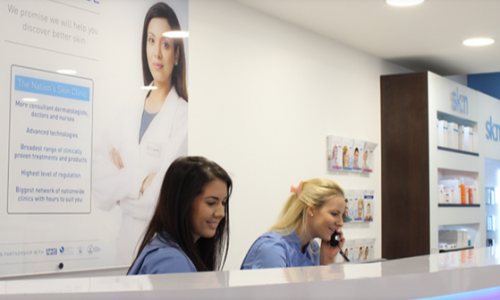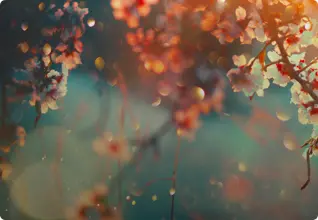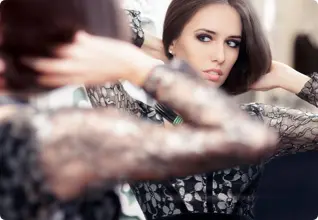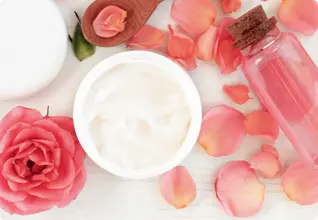Everything you need to know about Rosacea

April is Rosacea Awareness Month, so we have spoken with our Consultant Dermatologist Dr Daron Seukeran, to answer all your questions on the skin condition
What is rosacea?
Rosacea is a chronic inflammatory skin condition which usually occurs on the face and can affect all skin types. It may also manifest itself as persistent redness, blood vessels and spots which can resemble a similar appearance to acne, although the two should not be confused. As a dermatologist it is quite a common skin condition I see in patients that visit me for treatment. It is more common in middle aged women, however, when this affects men it can be more severe. Rosacea is not specifically associated with any food allergies. However it is more apparent in Caucasian and European individuals who have fair skin.
What are the symptoms of rosacea?
There are four main symptoms to help identify if you are suffering with rosacea. Persistent flushing of the face where redness will most commonly appear around the nose and cheeks, as well as thread veins which will be visible blood vessels around the same areas of the face and will not disappear without laser treatment. Then there are red spots which can be filled with puss and can often be misdiagnosed if not seen by a dermatologist. Thickening of the skin can also appear as excess, bumpy tissue, particularly around the nose although this is a rare complication of rosacea known as rhinophyma rosacea and is mainly seen in male patients.
Dry skin is more of a symptom for eczema or dermatitis and its not usually associated with rosacea but can be a factor in some very individual cases. In some cases rosacea can be mistaken for eczema or dermatitis as a patient will only appear to suffer with inflammation and redness of the skin and may not have spots which can cause it to look similar.
What everyday activities and foods can exacerbate rosacea?
It is not completely known what causes rosacea, although there are certain triggers that are known to contribute to make it appear worse such as alcohol, tea or coffee and spicy foods. In some cases the individual can be sensitive to the sun and find that going from a hot to cold temperature, or vice versa, can trigger it to flare up.
Some people claim their rosacea is less noticeable in summer, this is a variable claim as some people find that rosacea flairs up in the sunshine and heat, but in others this can actually help it to reduce the inflammation.
Is there a cure for rosacea?
There is no known cure for rosacea although there are a number of effective treatments that can help to alleviate the symptoms of rosacea. This includes antibiotics and topical prescription medications which can be prescribed by a doctor and can often lead to remission after about four to six months of treatments. In terms of dealing with redness and flushing, laser treatment can be an effective solution in removing these symptoms.
Any other top tips for dealing with rosacea?
If you can identify any triggers that causes your Rosacea to flare up, whether that be certain foods or drink, it is important to try and avoid these however, the most important thing is to seek medical attention if it persists. If left untreated rosacea can cause other complications such as irritation of the eyes and enlargement of the nose such as rhinophyma, which is rare but also a very unpleasant symptom.
Best skincare for rosacea? Worst skincare products?
It is always a good idea to try and use natural and gentle skin products when suffering with a skin condition or try looking for a non-fragranced moisturiser. Although, as rosacea is a medical condition it is most often treated with specially prescribed creams or tablets.
What are the best makeup products/techniques?
Green concealers are great for being used as colour corrector when trying to cover up the appearance of severe redness of the skin as they will help tone down the appearance of inflammation and help to camouflage it underneath your everyday foundation. It is always advisable to try and wear as little or light makeup as possible. The breathable Lycogel Foundation range, is an SPF 30 ideal for people with sensitive skin, who may try to camouflage Rosacea, Eczema or Acne. The heaviness of other foundation product can irritate those who are suffering with puss filled spots and contribute to drying out the skin.
Find out more about Rosacea treatments available at sk:n or book a consultation today!
Related Articles

08
Apr 2024

08
Apr 2024
Request a callback
One of our friendly sk:n advisors will call you to book your consultation.
- More than 450 consultants, doctors, nurses and medical practitioners
- Regulated by the Care Quality Commission, Health Inspectorate Wales and Health Improvement Scotland
- Partner of the NHS
- Rated excellent by our clients on Trustpilot
- Strict safety and care protocols




